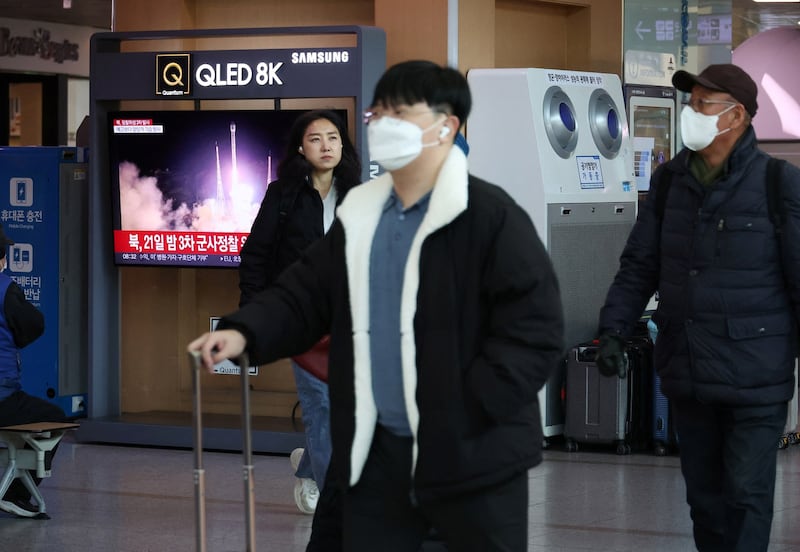South Korea has suspended a landmark military agreement with the North to resume surveillance activities near the border between the two states, a countermeasure to Pyongyang’s illegal satellite launch that violated the United Nations Security Council resolution.
South Korea’s President Yoon Suk Yeol on Wednesday endorsed his Cabinet’s approval of a motion of the suspension, according to a statement from the South’s Presidential Office.
The decision follows close on the heels of North Korea's satellite launch despite international warnings late Tuesday. The North's state-run Korean Central News Agency later reported that it has successfully put its spy satellite into orbit.
Pyongyang’s provocative move, also drew strong rebuke from Seoul’s ally, the United States, which chastised North Korea for undermining stability on the Korean peninsula.
Rocket technology can be used for both launching satellites and missiles. For that reason, the U.N. bans North Korea from launching a ballistic rocket, even if it claims to be a satellite launch.
“North Korea ignored repeated warnings from us and the international community and launched a so-called ‘military reconnaissance satellite’ last night,” South Korea’s Prime Minister Han Duck-soo said at an emergency cabinet meeting in Seoul Wednesday.
“This is a grave violation of U.N. Security Council resolutions that prohibit any launch by North Korea using ballistic missile technology and a direct provocation that threatens our security.”
The prime minister said the launch also shows the North’s clear defiance of the military agreement signed on Sept. 19, 2018 to reduce hostility and build trust on the Korean peninsula.
“We came to the conclusion that tolerating any further restrictions on our military's intelligence and surveillance activities in the border area in accordance with the September 19 Military Agreement would significantly reduce our readiness and lead to a situation where we would be unable to protect the lives and safety of our citizens,” Han said, noting that Seoul is suspending the effectiveness of the some parts of the agreement until mutual trust between the two Koreas is restored.

While the prime minister did not elaborate on the exact parts of the deal that Seoul was suspending, his remarks suggested South Korea was likely to resume reconnaissance and surveillance operations against North Korea in the area around the military demarcation line.
Han said restrictions spelled out in the agreement have limited South Korea’s ability to identify North Korean artillery attacks and train its armed forces to prepare for them, leaving them vulnerable should a surprise attack from the North occur.
“The immediate resumption of reconnaissance and surveillance activities along the Military Demarcation Line through the partial suspension of the September 19 Military Agreement will greatly enhance our military’s ability to identify threat targets and respond to North Korean threats.”
The two Koreas have agreed to halt what the other has defined as hostile actions toward one another near the border, but the North has conducted a number of provocations, violating the terms of the agreement. Critics in South Korea, thus, have long argued that the deal has already become ineffective, only serving to restrict Seoul’s operational and surveillance capabilities.
North Korea has been solidifying its ties with Russia, and South Korea’s National Intelligence Service said earlier this month that it is likely to have received help in obtaining satellite launch technology from Moscow.
The launch comes as Yoon is in London for his state visit to the United Kingdom. North Korea has a history of provocations when South Korean presidents are abroad, seemingly to challenge Seoul's response capabilities and the efficiency of its systems in the president's absence.
Edited by Elaine Chan and Taejun Kang.
